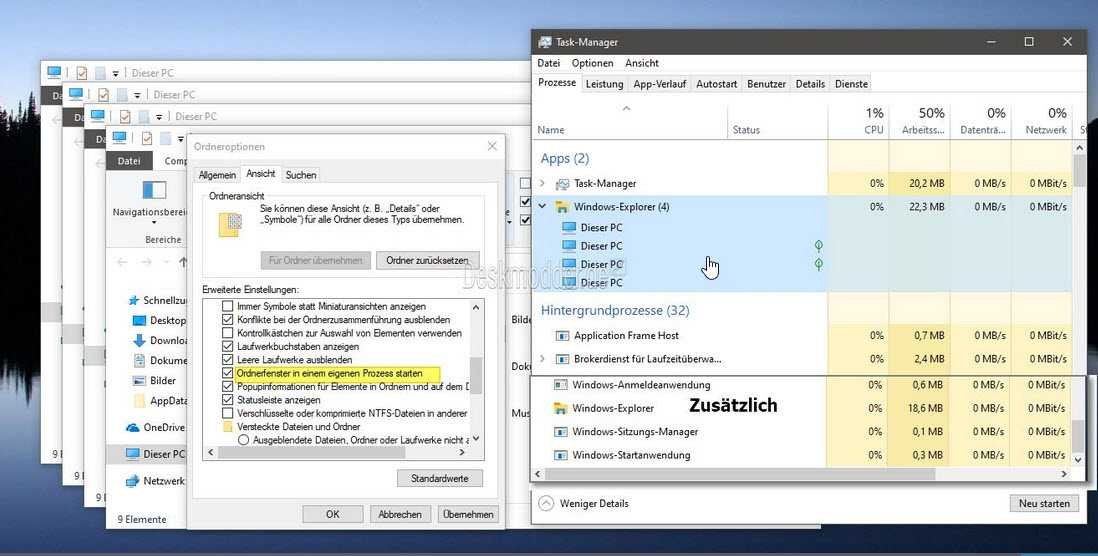Windows 10 April 2019 Update: Το λειτουργικό σύστημα Windows 10 στην έκδοση 1903, γνωστό και ως 19H1 ή April 2019 Update, αναμένεται να κυκλοφορήσει αυτό το μήνα με σημαντικές βελτιώσεις
One of the tweaks in the upcoming version concerns File Explorer, the default manager files which comes pre-installed in Windows 10.
With the upcoming Window 10 of 1903, new File Explorer windows will start with a separate process, so if you work with multiple folders, you will have multiple processes from the same file manager that will run simultaneously.
This tweak has an important advantage: if one of the windows stops responding, closing it will not affect the other windows of the file manager. The way is similar to the way program tabs work tours Google Chrome. 
It is known that Google's browser uses separate processes, something that aims to preserve the other tabs when a website stop responding.
This feature should be enabled from the File Explorer Folder Options. After the option is enabled, the Windows File Explorer processes in Task Manager will expand and you will see a new one when you open a new folder.
To see if this feature will be RAM-friendly with Windows systems, let's say things by their name are needed around 2GB RAM only to function dignified.
Windows 10 in 1903 will be released in just a few weeks and it is believed that RTM build has already been signed. However, Microsoft has not yet announced anything official about the release date of the new version.
If you're in a hurry now, you can always try out the new File Explorer feature in the latest Windows 10 19H1 previews available for Insiders in Fast and Slow Ring.
_____________________
- Mark Zuckerberg: help from regulators & governments
- WindUws 10 build 18362 fix a serious problem
- Windows Server 2019 conversion to desktop ...





